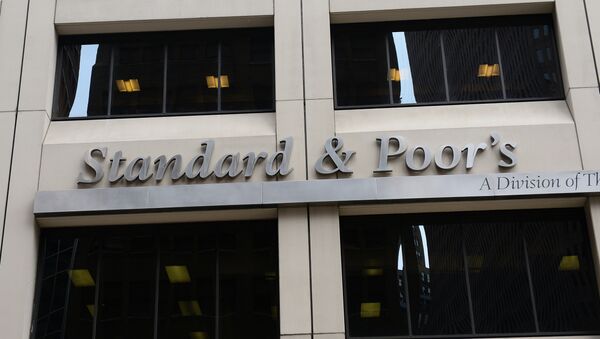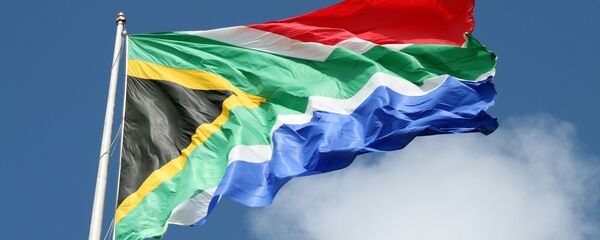Kristian Rouz – South Africa is ready to implement fiscal reforms in its next year’s budget after the international rating agency S&P cut its local currency debt rating further into “junk.” This as the nation’s economy is struggling amidst the low global commodity prices and economic mismanagement and sweeping corruption at home.
The finance ministry says the new policy will be “decisive,” aiming to increase the sustainability of its fiscal system.
S&P downgraded South Africa’s rating Friday, citing its concerns of the nation’s further economic deterioration and political turmoil, as well as its derailed public finances. Another rating agency, Moody’s, put South Africa on its watch-list for a possible downgrade.
"Weak GDP growth has led to the further deterioration of South Africa's public finances beyond our previous expectations," S&P said. "We think the government will attempt to introduce offsetting measures in an effort to improve budgetary outcomes, but these may not be strong enough to stabilize public finances, and may weaken economic growth further in the near term."
South Africa’s unemployment stands at 28 percent, whilst GDP growth has slowed to 1 percent annually. This as the nation’s yet another Finance Minister Malusi Gigaba said he expects the economic growth to sharply slow down even further, whilst the budget deficit and government debt are poised to increase.
"The 2018 Budget will outline decisive and specific policy measures to strengthen the fiscal framework," the finance ministry’s statement read.
S&P, however, said its current forecast on South Africa is “stable,” as investors have already priced in the negative trends in the nation’s economy and public finances. South Africa, once the most industrialized and advanced nation on the African continent, has been sustainably sliding into the economic abyss since the mid-1990s.
South Africa’s main opposition party, the Democratic Alliance (DA) dubbed the junk status as a vote of no confidence in the ANC, and a failure of the ruling party’s radical-left experimentation, which has lasted for over 20 years.
“What this means is that S&P have effectively dialled back their ‘ratings clock’ by 23 years and downgraded South Africa’s sovereign credit rating to ‘junk status’,” DA’s spokesman on finance David Maynier said Saturday.
“The bottom line is that the ratings decisions of the two most important ratings agencies amount to a vote of no confidence in the new and mysterious ‘Presidential Fiscal Committee’s’ capacity to stabilise public finances over the medium term in South Africa,” Maynier added.
South Africa’s national debt has risen to over $240 billion, or 60 percent of GDP, and DA is expecting it to “backfire” by fiscal year 2020/21.
The governmental commission – “Presidential Fiscal Committee” – is investigating why the national budget suffered a $3.6-billion shortfall in revenue, as well as the degradation of the national tax collection system.
"Restoring business and consumer confidence, and catalyzing inclusive growth is the top priority of government," the finance ministry said.
This news is hardly encouraging, as South Africa’s largest businesses have been in negotiations with the government of President Jacob Zuma since March, when the President replaced Finance Minister Pravin Gordhan with Gigaba.
The talks have failed, and the South African credit system is bracing for the worst.
"The February budget statement is South Africa's last chance to demonstrate the structural reforms and fiscal consolidation that are required to improve economic growth prospects,” Mike Brown of Nedbank, the largest South African lender, said.




